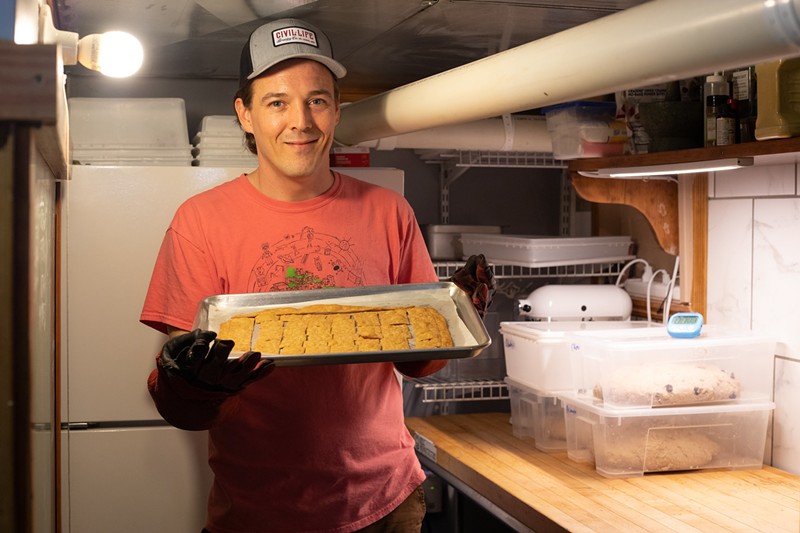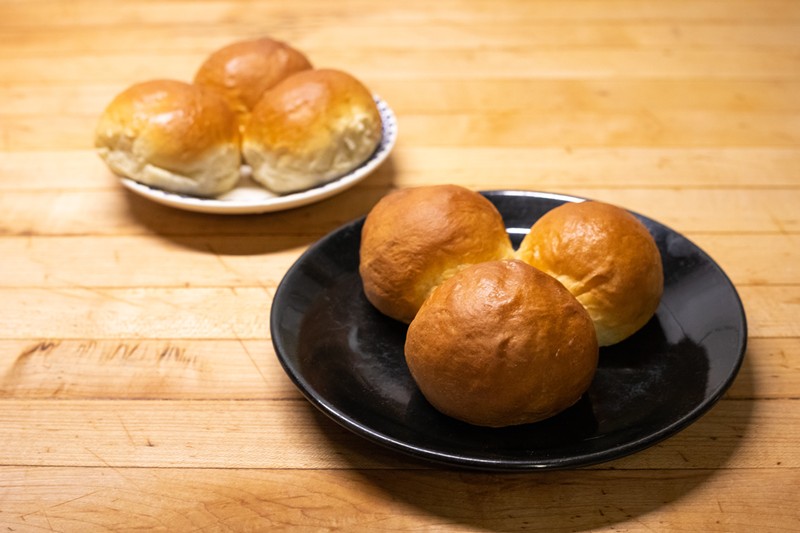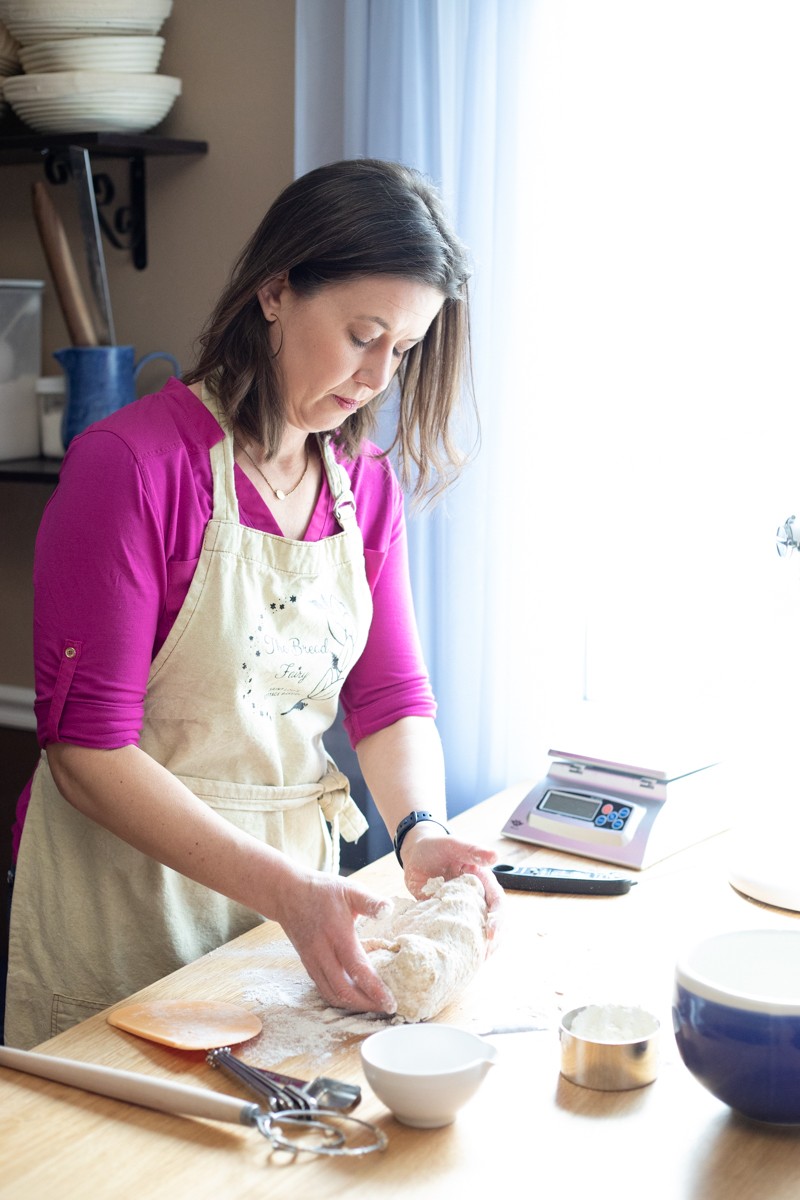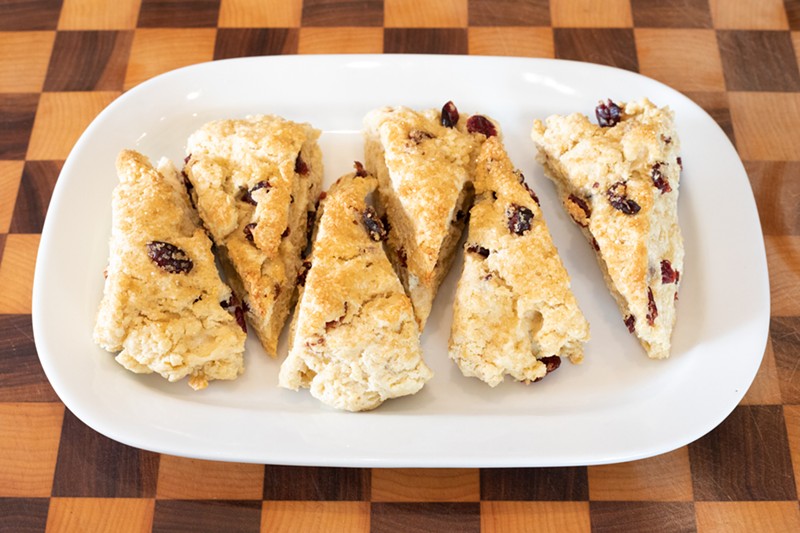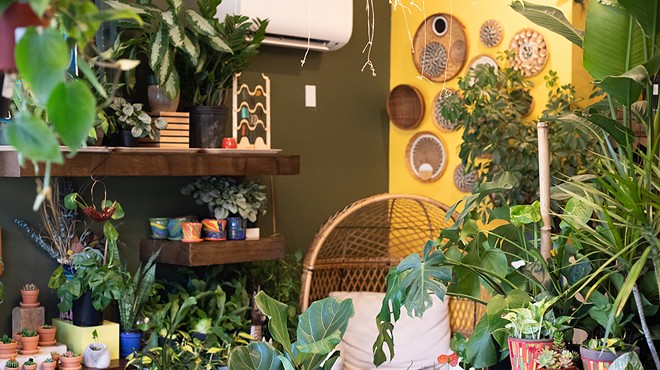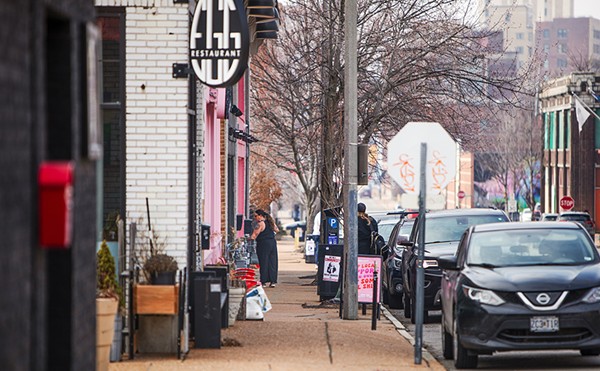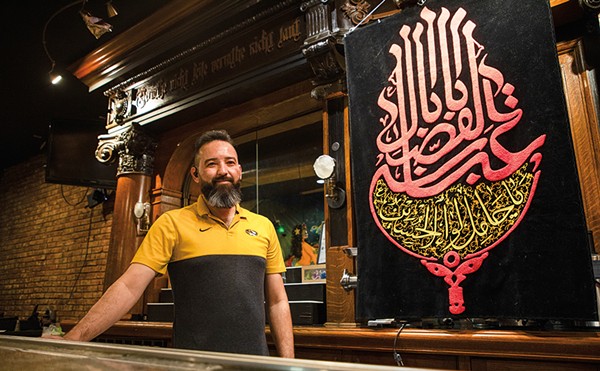The cracker is everything you'd want it to be: buttery, intensely cheesy, shatteringly crisp and just the right amount of salty. It is something like a gourmet, way-more-delicious Cheez-It.
Just like the packaged snack, these crackers are extremely bingeable. You'll probably have to remove them from your presence after a few handfuls.
But, unlike the aforementioned mass-produced crackers, these aren't available in any store. Rather, you can get them packed into a large Mason jar and dropped off on your porch by the man who baked them: Joe Stein of A.Bun.Dance Bakery.
Stein is among a growing number of St. Louisans baking goods at home and selling them directly to consumers (pun intended) under Missouri's cottage food laws. The state allows individuals to sell certain homemade items, such as breads, cookies, jams and honey, directly to the buyer, according to the Department of Health and Senior Services.
The cottage food law first went into effect in 2014. Last year, it was expanded to allow internet sales within the state with the passage of House Bill 1697, though some cities have local regulations as well. Items sold under the cottage law are exempt from the Missouri Food Code and thus offer a low-barrier entry point for those wishing to dip their toes into the food world.
That was certainly true for Stein, who had been a baker at St. Louis spots such as Black Bear Bakery, Winslow's Home and Olio.
"I was like, 'Oh, this is something that's kind of doable,' like I could start super small, have a little space in my kitchen, and just kind of see where it goes," he says. "The [barrier to] entry is much lower than trying to get a space or trying to go to a restaurant and convince them to have a bread program."
Stein started his business about a year ago. During the pandemic, he'd been uncertain if he'd again feel safe working in a restaurant kitchen and paused to take stock of what he wanted in life. He now sells his wares to a small customer base but has plans to expand in the near future with a website.
COVID-19 as impetus is something of a trend among those selling under cottage law. After countless people trapped at home turned to sourdough and decorating focaccia, it makes sense that some of those bakers would decide their goods were good enough to sell.
Unlike Stein, though, many had never worked in a professional kitchen. One such person is Jennifer Patneau.
From her home in Shrewsbury, Patneau bakes sourdough, as well as the occasional sweets and quickbreads. She'd grown up watching her mother and grandmother in the kitchen and got started baking for fun. Things took a turn after she attended a bread class at the Kitchen Conservatory in March 2020 and started playing around with new bakes.
"My husband went out and bought a big, like, 25-pound bag of flour and two pounds of yeast," Patneau says. "He was like, 'I want you to make more bread. This is delicious.' Little did I know that flour and yeast were going to be really hard to come by in the next couple of weeks."
She got cranking, baking sourdough loaves and dropping them off on friends' porches as the outside world shut down, getting a new nickname: the Bread Fairy. After about a year, Patneau thought she'd give it a go as a business, adopting the Bread Fairy (thebreadfairystl.com) as her business name.
Making sourdough from scratch is a significant time investment that requires a lot of waiting — Patneau starts her dough about a full day before she bakes. On an hourly breakdown, her business might not make financial sense. Though her sales cover expenses, she's still trying to figure out if it's sustainable.
"I'm really fortunate that my family is super supportive, and I'm not trying to make a living doing this," she says. "I enjoy meeting people and sharing my bread with them, and so that's why I do it."
Ben Krause of Benny's Bagels (bennysbagels.com) similarly enjoys a baking business as a side gig. A Square employee, Krause found making bagels to be a good outlet from his work in the tech industry. Plus, in his opinion, there just weren't many good bagels to be had in town.
For Krause, an ideal bagel is New York style: chewy, dense but not too dense, sporting a good skin.
"Boiled and baked," he says. "I think without that it's really just bread that looks like a bagel."
Like Patneau, Krause got started baking for friends and family, but his girlfriend, Bella Gross, gave him the push to make it a business. After a lot of research into the laws and several tweaks to his base dough and flavors, he launched earlier this year.
So far, his customers' responses — as you'd expect from people presented with freshly made carbs — have been positive.
"It's going really well," he says. "The cottage path has been a good way to test [the business] out and get proof of concept and have fun with it."
Read more City Guide stories:
Coming soon: Riverfront Times Daily newsletter. We’ll send you a handful of interesting St. Louis stories every morning. Subscribe now to not miss a thing.
Follow us: Google News | NewsBreak | Reddit | Instagram | Facebook | Twitter

